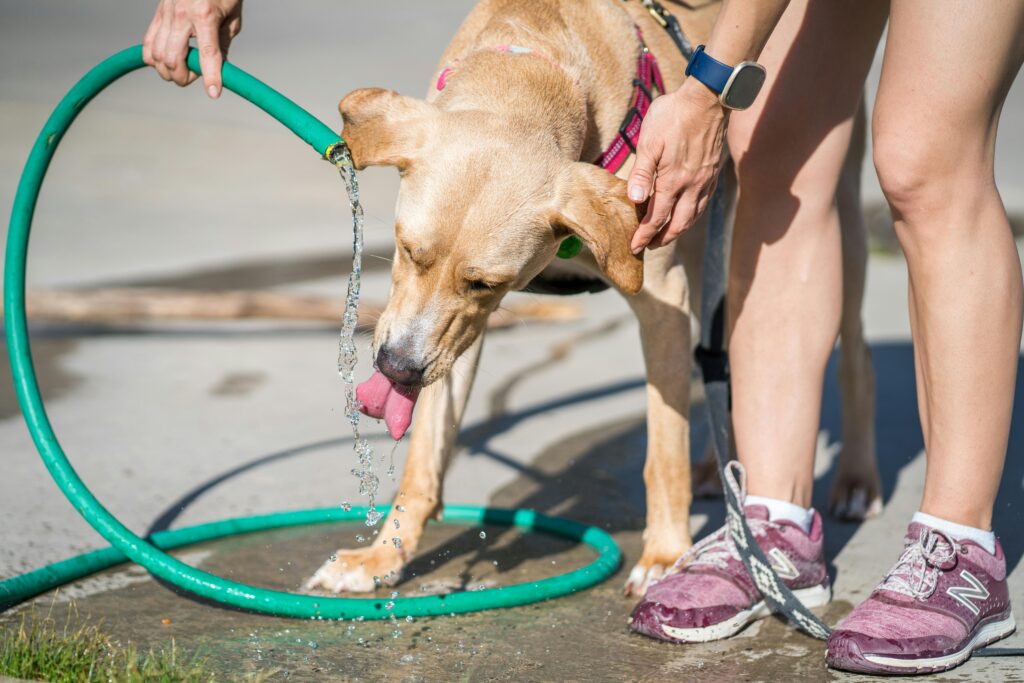
As dogs age, changes in their health and habits become more apparent. One concerning issue many dog owners face is when their senior dog stops eating but continues to drink water. This shift in behavior can indicate underlying health problems that need attention. In this article, we’ll explore the potential causes and provide tips on how to manage the situation.
Common Causes for Loss of Appetite in Senior Dogs
- Dental Issues Older dogs often experience dental problems such as gum disease, tooth decay, or infections. These conditions can make eating painful, causing your dog to avoid food altogether. If your dog shows interest in food but stops eating after a few bites, dental pain could be the reason.What to do: Inspect your dog’s mouth for any signs of inflammation, bleeding, or foul odor. Consult your vet for a thorough dental checkup. Softening food or switching to a softer diet may also help.
- Digestive Issues Senior dogs may suffer from digestive problems such as nausea, constipation, or upset stomachs. These issues can decrease appetite while still allowing your dog to drink water normally.What to do: Observe your dog’s stool and vomiting patterns. If you notice anything unusual, like diarrhea, blood in the stool, or frequent vomiting, visit your veterinarian for a diagnosis.
- Kidney Disease One of the most common conditions in older dogs is kidney disease. It often leads to a decreased appetite but an increased need for water. Dogs with kidney disease may appear lethargic, lose weight, and urinate more frequently.What to do: Take your dog to the vet for a blood and urine test. Early detection can help manage the disease with diet changes, medication, or other treatments.
- Liver Problems Liver disease can also cause loss of appetite while keeping thirst intact. Symptoms may include jaundice (yellowing of the skin or eyes), vomiting, or general weakness.What to do: If liver issues are suspected, your vet will run blood tests and possibly an ultrasound to assess liver function. Medication and diet changes can improve your dog’s condition.
- Cancer Unfortunately, certain cancers can cause a loss of appetite in senior dogs, even when they continue to drink water. Cancers affecting the stomach, intestines, or other organs can lead to nausea or pain that makes eating difficult.What to do: Early detection through regular vet visits is key. If your dog refuses food consistently, ask for diagnostic tests to rule out serious conditions like cancer.
- Pain and Mobility Issues Arthritis or joint pain might not directly affect your dog’s appetite, but discomfort can reduce their interest in food. They may still drink water to stay hydrated, but the physical strain of moving to reach their bowl or discomfort while eating can reduce food intake.What to do: Consider ways to ease your dog’s discomfort, like providing a raised food bowl, ensuring a pain management plan, and keeping your vet informed of their symptoms.
Encouraging Your Senior Dog to Eat
- Switch to softer food: If dental issues are the cause, switch to soft or wet food that’s easier to chew.
- Warm the food: Warming your dog’s food can enhance its aroma, making it more enticing.
- Small, frequent meals: Instead of offering one large meal, try smaller portions throughout the day.
- Try a different protein: Sometimes a new flavor or protein source can re-spark your dog’s interest in eating.
- Hand-feeding: Senior dogs may feel more encouraged to eat when fed by hand, especially if they associate it with affection.
When to See the Vet
If your dog refuses food for more than 24-48 hours or shows other symptoms such as vomiting, diarrhea, weight loss, or lethargy, seek veterinary care immediately. Loss of appetite in senior dogs can be a sign of serious illness, and early intervention can make a significant difference in treatment and recovery.
Conclusion
While it’s not uncommon for senior dogs to lose their appetite, it’s crucial to monitor the situation closely. If your dog continues to drink water but refuses food, it’s important to investigate the root cause and take action. By consulting your vet and providing supportive care, you can help your furry friend stay comfortable and healthy in their golden years.
